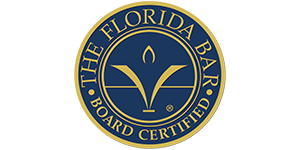Tampa Car Accident + Personal Injury Lawyers
For more than 40 years, personal injury lawyer Jack G. Bernstein has protected the rights of individuals who have been injured in a variety of circumstances. Throughout his career, Bernstein has been a strategist thoroughly dedicated to the idea of protecting the rights of his clients. Mr. Bernstein is a member of the Florida State Bar Association, the Hillsborough Bar Association and the Clearwater Bar Association.
Mr. Bernstein has the experience and expertise to handle a wide range of injury cases. Among the types of plaintiffs Mr. Bernstein represents are individuals involved in car accidents caused by drunk drivers or other exhibiting negligence, medical complications resulting from carelessness caused by a physician or a medical facility, including brain injury, bicycle, motorcycle, moped and truck accidents, admiralty law and cruise ship accidents, accidental drownings, all types of wrongful death lawsuits, along with most injury, catastrophic occurrences and legal malpractice issues.





